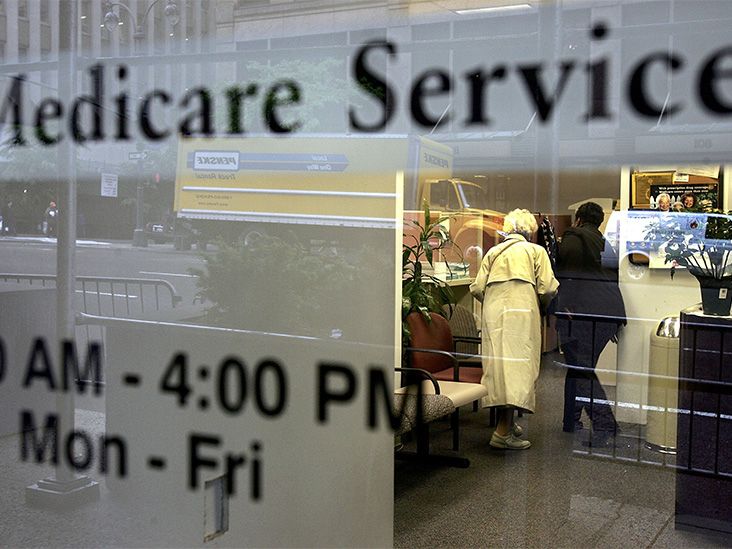Introduction
Imagine a world where aging, illness, or disability doesn't compromise the quality of lifewhere compassionate care and support are always within reach. Nursing custodial care facilities play a pivotal role in making this vision a reality. These services are essential for individuals who need help with daily activities, providing a lifeline to maintain dignity and independence.
Custodial care services include various long-term care options designed to provide essential support for those needing assistance due to age or health conditions. Unlike skilled nursing care, which focuses on medical treatments, custodial care emphasizes non-medical support such as bathing, dressing, and meal preparation. This distinction is crucial for families navigating the complexities of long-term health management.
Understanding the importance of custodial care can empower you to make informed decisions about your loved ones' well-being. This article explores the different types of custodial care available in 2024, from nursing homes to in-home care services. By exploring these options, you'll gain valuable insights into choosing the best setting that aligns with personal needs and preferences.
Understanding Custodial Care
Custodial care is a type of long-term care service that provides assistance with daily living activities such as bathing, dressing, eating, and using the bathroom. Unlike medical or skilled nursing care, custodial care does not involve intensive medical treatment but focuses on supporting individuals who need help managing everyday tasks.
Definition and Scope of Custodial Care
This type of care is essential for individuals who are unable to perform basic activities independently due to aging, illness, or disability. Services can be provided in various settings including at home, in a custodial nursing home, or specialized facilities like the Full House Custodial Care Center.
Differences Between Custodial Care and Skilled Nursing Care
Custodial nursing care differs significantly from skilled nursing care. While custodial care addresses non-medical needs:
- Skilled nursing care involves medical treatments administered by licensed healthcare professionals like custodial nurses.
- Skilled nursing facilities often provide post-surgical rehabilitation and therapy services whereas custodial settings focus on long-term support for daily activities.
Importance of Custodial Care in Long-Term Health Management
Understanding the meaning of custodial care helps families make informed decisions about long-term health management. Long-term custodial care ensures that individuals receive consistent support tailored to their daily needs, enhancing their quality of life. However, it's crucial to note that custodial care and Medicare coverage are limited; Medicare does not typically cover long-term custodial expenses. This makes understanding Medicaid eligibility and other financial options vital for planning long-term support.
For those wanting detailed information on specific providers, MedicineContact.com's free NPI lookup can be an invaluable resource.
Types of Custodial Care Services Available
1. Nursing Homes
Nursing homes play a crucial role in providing custodial care for individuals who require constant supervision and assistance with daily living activities. These facilities are designed to cater to residents with significant health needs, often offering both medical and custodial services.
Role of Nursing Homes in Providing Custodial Care:
- 24/7 Supervision: Nursing home custodial care ensures that residents receive continuous monitoring, which is vital for those with severe health conditions or cognitive impairments.
- Comprehensive Support: These facilities offer a blend of medical care and assistance with everyday tasks, such as bathing, dressing, and meal preparation.
- Specialized Care Plans: Each resident receives a personalized care plan tailored to their specific needs, ensuring optimal support and quality of life.
Key Services Offered in Nursing Homes:
- Medical Services: Nursing homes provide access to on-site healthcare professionals, including registered nurses, physicians, and therapists. This ensures timely medical intervention and reduces the need for hospital visits.
- Rehabilitation Programs: Many nursing homes offer physical, occupational, and speech therapy to help residents regain or maintain their functional abilities.
- Social Activities: To enhance the quality of life, nursing homes organize various recreational and social activities. These activities promote mental stimulation and foster a sense of community among residents.
- Nutritional Support: Residents receive balanced meals tailored to their dietary needs. Special diets are also accommodated to manage chronic conditions like diabetes or hypertension.
- Housekeeping and Laundry Services: Maintaining a clean and comfortable living environment is essential. Nursing homes handle all housekeeping chores, allowing residents to focus on their well-being.
Overall, custodial care in a nursing home provides a secure environment where individuals can receive comprehensive support tailored to their unique needs. For more information on Nursing Custodial Care Facilities in the US, visit MedicineContact.com.
2. Assisted Living Facilities
Assisted living facilities offer a unique blend of independence and support, tailored for individuals who need help with daily activities but do not require the intensive medical care provided in nursing home custodial care.
Key Differences Between Assisted Living and Nursing Homes
- Level of Care: While nursing homes provide extensive medical and custodial care, assisted living facilities focus on helping residents with daily tasks such as bathing, dressing, and medication management.
- Environment: Assisted living settings are often more like residential apartments, offering private or semi-private rooms, whereas nursing homes typically have a more clinical atmosphere.
- Independence: Residents in assisted living enjoy a higher degree of autonomy and social engagement compared to those in nursing homes.
Benefits of Assisted Living for Daily Support
Assisted living facilities cater to the needs of individuals requiring moderate assistance:
- Personalized Care Plans: Customized to each resident's specific needs.
- Social Activities: Programs designed to encourage community interaction and mental stimulation.
- Safety and Security: 24-hour supervision ensures residents are safe while maintaining a sense of independence.
For more information on different types of custodial care services including nursing homes, in-home caregivers, adult daycare services, and continuing care retirement communities, visit MedicineContact.com.
Understanding these distinctions can help families make informed decisions about the most suitable environment for their loved ones.
3. In-home Care Services
In-home caregivers offer a valuable alternative for those seeking custodial care in the comfort of their own homes. These services include assistance with daily living activities such as bathing, dressing, meal preparation, and medication management. Many families prefer in-home care to maintain a sense of normalcy and independence.
Pros of In-home Care:
- Personalized attention: One-on-one care tailored to individual needs.
- Familiar environment: Allows individuals to stay in their own homes.
- Flexible scheduling: Care plans can be adjusted based on changing requirements.
Cons of In-home Care:
- Cost considerations: Can be expensive without insurance coverage or financial aid.
- Limited medical support: May not provide the same level of medical care as nursing home custodial care.
- Caregiver availability: Finding reliable and trained in-home caregivers can be challenging.
In-home care services offer a blend of convenience and personalized attention, making them an attractive option for many families.
4. Adult Daycare Services
Adult daycare services offer a valuable solution for individuals who require supervision and assistance during the day but do not need round-the-clock care. These services are particularly beneficial for families with caregivers who work or need respite from their caregiving duties.
Key benefits of adult daycare services include:
- Social Interaction: Participants engage in structured activities, fostering social connections and reducing feelings of isolation.
- Health Monitoring: Professional staff provide health monitoring, medication management, and personal care assistance.
- Therapeutic Activities: Programs often include physical therapy, occupational therapy, and recreational activities that help maintain cognitive and physical abilities.
Adult daycare services complement other forms of custodial care such as nursing home custodial care, assisted living facilities, and in-home caregivers. They provide a middle ground for those who need more support than what in-home care offers but do not yet require the full-time care provided by nursing homes or continuing care retirement communities (CCRCs).
These services also play a crucial role in supporting independent living for seniors, as highlighted in this article on how adult day care services support independent living. Furthermore, they can serve as a transitional phase for seniors moving from adult day care to a senior living community, a process detailed in this resource about transitioning from adult day care to senior living.
For more information on different types of custodial care services such as nursing homes, assisted living facilities, in-home care services, adult daycare services, and continuing care retirement communities (CCRCs), you can visit MedicineContact.com which provides a comprehensive database including NPI numbers of healthcare providers in Nursing Custodial Care Facilities.
5. Continuing Care Retirement Communities (CCRCs)
Continuing Care Retirement Communities (CCRCs) offer a unique blend of housing, services, and healthcare designed to accommodate the changing needs of aging individuals. These communities provide a continuum of care that includes independent living, assisted living, and skilled nursing care, all within the same campus. This integrated approach ensures that residents can transition seamlessly between different levels of care as their needs evolve over time.
Advantages of CCRCs for Aging Individuals:
- Comprehensive Service Offerings: CCRCs deliver a wide range of services including meal plans, housekeeping, transportation, social activities, and healthcare services. This all-in-one model simplifies life for residents by providing everything they need in one location.
- Peace of Mind: Knowing that higher levels of care are available if needed offers peace of mind to both residents and their families. The ability to stay within the same community while receiving appropriate care reduces stress and disruption.
- Social Engagement: The community setting encourages social interaction and engagement through organized activities and shared amenities like fitness centers, libraries, and gardens. This helps combat loneliness and promotes mental well-being.
For more information about different types of custodial care services such as nursing home custodial care, assisted living facilities, in-home caregivers, and adult daycare services, visit MedicineContact.com.
Financial Aspects of Custodial Care Services
Understanding the cost of custodial care is crucial for planning long-term health management. The expenses can vary widely depending on the type of facility and the level of care provided:
- Nursing Homes: These facilities often have the highest costs, ranging from $7,000 to $10,000 per month due to comprehensive medical and custodial services.
- Assisted Living Facilities: More affordable than nursing homes, with monthly costs typically between $3,500 and $5,000.
- In-home Care Services: Costs can fluctuate based on the number of hours required daily, averaging around $4,000 per month for full-time care.
- Adult Daycare Services: Generally more economical at approximately $1,500 to $2,500 per month.
- Continuing Care Retirement Communities (CCRCs): These often require a substantial upfront entrance fee plus monthly charges ranging from $3,000 to $6,000.
When considering funding options, it's important to note that custodial care Medicare coverage is highly limited. Medicare primarily covers short-term skilled nursing care post-hospitalization but does not cover long-term custodial care.
On the other hand, Medicaid is the primary payer for long-term custodial care services. To qualify for Medicaid eligibility for custodial care, individuals must meet specific income and asset criteria. The eligibility requirements vary by state but generally involve a thorough financial assessment.
For further information about Medicaid eligibility criteria for long-term services and detailed cost breakdowns by facility type, visit MedicineContact.com.
Regulatory Changes Impacting Custodial Care Services in 2024
The Centers for Medicare & Medicaid Services (CMS) introduced new staffing standards for nursing facilities in 2024, significantly impacting the quality and safety of care provided. These new standards mandate a total nurse staffing requirement of 3.48 hours per resident day (HPRD), which incorporates specific amounts of registered nurse (RN) and nurse aide care.
Key Components of the New Standards
- 24/7 RN Availability: Nursing facilities must have an RN on-site at all times.
- Resident-Focused Staffing Plans: Facilities are required to develop staffing plans based on input from residents and their families.
- Minimum Staffing Requirements: Detailed hours for both RNs and nurse aides to ensure a balanced approach to care.
Implications for Quality and Safety
These regulations aim to:
- Enhance resident safety by ensuring that qualified nursing staff are available around the clock.
- Improve the overall quality of life for residents through better-staffed environments.
- Increase transparency regarding Medicaid payments for direct care workers.
By focusing on stringent staffing requirements, the CMS seeks to address long-standing concerns about understaffing in nursing custodial care facilities, thereby paving the way for improved health outcomes and enhanced resident satisfaction.
Choosing the Right Custodial Care Service Provider
Selecting the right custodial care service provider means considering several critical factors to ensure the best possible support for long-term needs. Here are some key considerations:
Personal Needs Assessment
Understanding specific personal needs is essential:
- Assistance required with activities such as bathing, dressing, and eating.
- Management of chronic conditions or disabilities.
- Opportunities for social engagement and activities.
Staff Qualifications
The quality and qualifications of staff play a significant role in custodial care:
- Ensure caregivers are certified and trained in relevant healthcare areas.
- Look for providers with a track record in long-term care.
- Adequate staffing levels to ensure personalized attention.
Facility Environment
The environment of the facility impacts overall well-being:
- Regular maintenance and hygiene standards.
- Security features like handrails, non-slip floors, and emergency response systems.
- Comfortable, private, or semi-private rooms.
Additional Factors to Consider When Selecting a Facility for Long-Term Custodial Support
Other vital aspects include:
- Research reviews and ratings from current or past residents and their families.
- Proximity to family members for ease of visitation.
- Understanding financial aspects, including what is covered by insurance or Medicaid.
Evaluating these factors helps in making an informed decision that aligns with individual needs and preferences. For more detailed guidance on finding quality custodial care services, visit MedicineContact.com, where you can access a verified database of NPI numbers for healthcare providers.
Resources for Finding Quality Custodial Care Services Providers
Finding the right custodial care services can be challenging, but there are resources available to help you make informed decisions. Here are some valuable tools and organizations to consider:
Local Directories and Online Search Tools
- MedicineContact.com: MedicineContact's free NPI lookup allows you to easily search their verified database for NPI numbers of doctors, healthcare providers, and medical professionals. Find NPI Numbers
- State Health Departments: Local health departments often provide directories of licensed custodial care facilities.
- Eldercare Locator: A public service of the U.S. Administration on Aging, helping connect you with services for older adults and their families.
Caregiver Support Organizations
- Family Caregiver Alliance (FCA): Offers resources and support for caregivers, including information on finding respite care and long-term support.
- AARP: Provides extensive guides and checklists for evaluating care options and ensuring quality.
Professional Associations
- American Health Care Association (AHCA): Offers a directory of member facilities, which adhere to AHCA's standards.
- LeadingAge: Represents nonprofit aging services organizations, providing information on high-quality care options.
By using these resources, you can make informed decisions about Nursing Custodial Care Facilities that best meet your needs or those of your loved ones.
FAQs (Frequently Asked Questions)
What is custodial care and why is it important?
Custodial care refers to non-medical assistance provided to individuals who need help with daily activities such as bathing, dressing, and meal preparation. It plays a crucial role in long-term health management by ensuring that individuals receive the support they need to maintain their quality of life.
What types of custodial care services are available?
There are several types of custodial care services available, including nursing homes, assisted living facilities, in-home caregivers, adult daycare services, and continuing care retirement communities (CCRCs). Each option offers different levels of support based on individual needs.
How do assisted living facilities differ from nursing homes?
Assisted living facilities provide a more independent living environment with support for daily activities, while nursing homes offer more comprehensive medical care and supervision. The choice between the two often depends on the level of assistance required by the individual.
What should I consider when choosing a custodial care service provider?
When selecting a custodial care service provider, consider factors such as personal needs assessment, staff qualifications, facility environment, and available services. Evaluating these aspects can help ensure that the chosen provider meets the specific needs of the individual.
What are the financial aspects related to custodial care?
The cost of custodial care can vary significantly depending on the type of facility and services provided. It is important to understand Medicare's limitations regarding custodial coverage and familiarize yourself with Medicaid eligibility criteria for long-term services.
How can I find quality custodial care service providers?
To find suitable custodial care service providers, utilize resources such as local directories, caregiver support organizations, and online reviews. These tools can help you identify reputable options that offer long-term supportive assistance at home or within institutions.
Disclaimer: This article is for informational purposes only and does not constitute medical advice. Always consult with a healthcare professional before starting any new treatment regimen.
Related Coverage
Learn how medical alert watches work and compare top styles like smartwatches vs jewelry alerts. Review key features, leading brands, costs and getting started....
Discover easy tips and creative ideas to add more fruits and veggies to your daily diet. Meet nutrition recommendations and improve your health....
Learn if you qualify for Medicare eligibility and how to enroll without penalties. Get clear, simple guidance for seniors and disabled individuals....
Find out exactly what Medicare respite care covers, who qualifies, costs, and step‑by‑step ways to arrange it for your loved one....
See if you qualify for Medicare grocery benefits through Medicare Advantage plans. Get food allowances to help manage your health....
From arthritis to heart disease, seniors face many health challenges. Learn the most common senior health concerns and get tips for caring for elderly loved ones....
Check if Medicare cover cane costs, cane types, required prescription, and out‑of‑pocket share after the Part B deductible....
Lose weight without sacrificing flavor. Discover 50 delicious weight loss foods like fruits, vegetables, whole grains, lean proteins, healthy fats and spices....
Avoid common Medicare mistakes that cost you money. Learn how to enroll on time, choose the right plan, and save on healthcare....
Coping with retinol irritation like burning, redness, dryness? Learn how long symptoms last, when to worry, and get aftercare tips to heal skin post inflammation....








